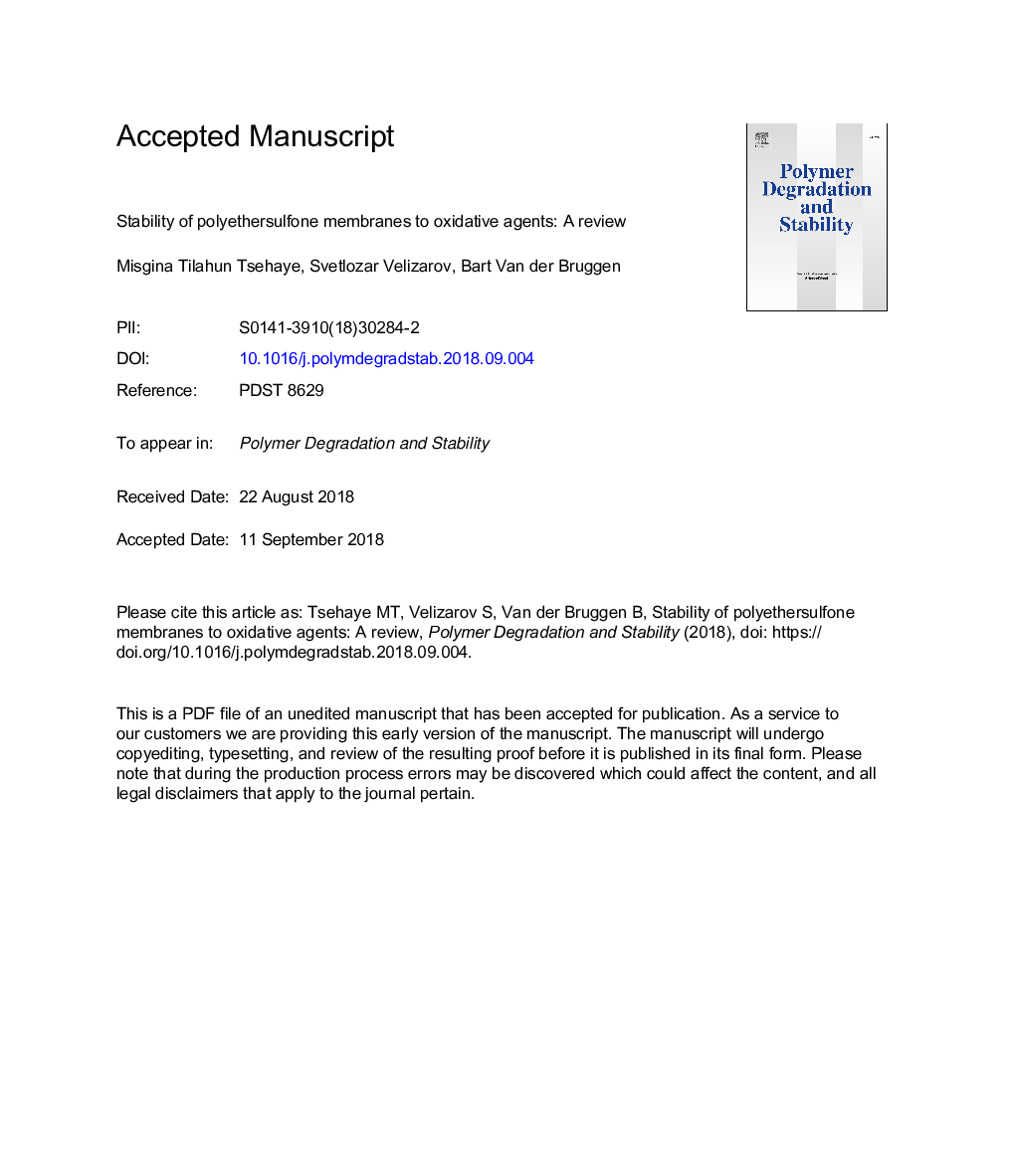| Article ID | Journal | Published Year | Pages | File Type |
|---|---|---|---|---|
| 10211272 | Polymer Degradation and Stability | 2018 | 39 Pages |
Abstract
Polyethersulfone (PES) is one of the most commonly used polymers for preparation of ultrafiltration and nanofiltration membranes. However, oxidative degradation of PES-based membranes, which results from exposing the membranes to oxidative agents, is limiting their operational lifespan and possible areas of application. Despite the high need for a fundamental understanding of the detailed oxidative degradation mechanism(s) of PES membranes in order to improve the effectiveness of cleaning/disinfecting agents and/or develop PES membranes with a higher tolerance to oxidative agents, it still remains an insufficiently understood topic. Therefore, this review aims at analyzing and critically discussing the recent state-of-the-art on the degradation mechanisms of PES membranes, focusing on the effects of chlorine-based oxidants (mainly NaOCl) and H2O2. Strategies that can be useful for minimizing/preventing oxidative PES membranes attack are presented. Finally, further prospective study possibilities to fill in the existing research gaps in this area are highlighted.
Related Topics
Physical Sciences and Engineering
Chemistry
Organic Chemistry
Authors
Misgina Tilahun Tsehaye, Svetlozar Velizarov, Bart Van der Bruggen,
